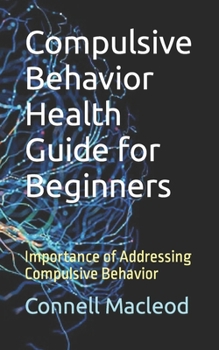Compulsive Behavior Health Guide for Beginners: Importance of Addressing Compulsive Behavior
Compulsive Behavior Health Guide for Beginners Compulsive behavior is a complex psychological phenomenon characterized by an irresistible urge to perform certain actions, often repetitively, even when they seem unnecessary or harmful. It manifests across a spectrum of disorders, ranging from Obsessive-Compulsive Disorder (OCD) to conditions like Hoarding Disorder, Trichotillomania, Excoriation (Skin-Picking) Disorder, and Body Dysmorphic Disorder (BDD). At its core, compulsive behavior involves a deep-seated need for control or a perceived sense of relief that comes from engaging in the behavior. It's crucial to distinguish compulsions from habits, as the former typically arise from a profound internal tension, while the latter are often more routine and less emotionally charged. Understanding compulsive behavior requires a nuanced exploration of its underlying psychological, biological, and environmental factors. It involves delving into the intricate interplay of genetic predispositions, brain chemistry, early life experiences, and present-day stressors. Addressing compulsive behavior is of paramount importance for several compelling reasons. Firstly, it directly impacts an individual's overall well-being and quality of life. Persistent engagement in compulsive acts can lead to heightened levels of anxiety, depression, and a diminished sense of self-worth. It can erode one's ability to pursue personal goals and engage in fulfilling relationships. Moreover, unaddressed compulsive behavior can lead to a cycle of escalating distress. The more an individual engages in these behaviors, the stronger the reinforcement loop becomes, making it increasingly challenging to break free from the pattern. This can lead to a deterioration in mental health and further isolation from social and professional spheres. In addition, compulsive behavior often affects not only the individual but also their immediate social circle. Family members, friends, and colleagues may find it perplexing and challenging to navigate, which can strain relationships and lead to feelings of helplessness and frustration. On a broader societal level, untreated compulsive behavior can have economic ramifications due to reduced productivity, increased healthcare costs, and other associated burdens. By addressing compulsive behavior at an individual level, we contribute to a healthier and more productive society as a whole. GRAB YOUR COPY TO CONTINUE READING
Format:Paperback
Language:English
ISBN:B0CHLC7T5G
ISBN13:9798861196000
Release Date:September 2023
Publisher:Independently Published
Length:94 Pages
Weight:0.22 lbs.
Dimensions:0.2" x 5.0" x 8.0"
Related Subjects
PsychologyCustomer Reviews
0 rating





